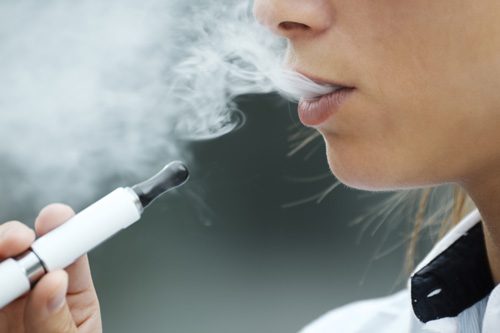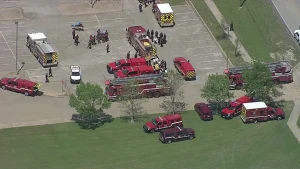Texas Bans Vape Ads Near Schools to Fight Rising Youth E-Cigarette Use.
Three new bills aim to stop vape companies from hooking the next generation. Here’s what’s changing.
Texas lawmakers have had enough. With vaping becoming more common among students even in middle schools, the state Senate just passed a set of new laws designed to cut off access, stop aggressive marketing, and protect kids from getting addicted to nicotine before they even hit high school.
The numbers tell the story:
-
Around 1.6 million public school students nationwide are using e-cigarettes
-
Nearly half a million of them are in middle school
-
Some vape cartridges contain as much nicotine as two packs of cigarettes
SB 1313: No More Cartoons, Candy Colors, or Youth-Driven Vape Ads
Senator Molly Cook from Houston says it’s time to take on what she calls a "predatory playbook" used by vape shops and e-cigarette brands to hook kids early.
Her bill, SB 1313, bans any advertising that uses logos, mascots, or imagery that might appeal to children — including colorful cartoon characters and playful branding.
“Parents across my district are frustrated and scared. These smoke shops are clearly targeting our kids,” Ms. Cook said.
“We’re talking about ads that look more like cereal boxes than warnings about nicotine.”
Anyone caught violating this law could face criminal charges under a Class B misdemeanor.
SB 1316: Closing the Gap in Vape Advertising Zones
Texas already has rules on the books that ban traditional tobacco ads near schools and churches but vaping products weren’t part of those rules. That’s what SB 1316 changes.
This bill makes sure e-cigarettes are treated the same as cigarettes, keeping their ads at least 1,000 feet away from schools and places of worship.
“We can’t allow the rules to lag behind the products. It’s all the same harmful substance, and kids shouldn’t be seeing these ads on the way to school.” Senator Molly Cook.
SB 464: Blocking Vape Sales Near Schools and Churches
Senator Donna Campbell pushed through a third bill, SB 464, that takes things a step further. Instead of just banning ads, this bill bans the sale of e-cigarettes and other tobacco products within 1,000 feet of schools and churches.
“This is about prevention through proximity. If it’s harder to get, fewer kids will try it. That’s the goal.”
This kind of zoning rule has worked in the past with alcohol and adult content stores and lawmakers are hoping it’ll work for nicotine, too.
Health vs. Free Speech
Any law that touches advertising is going to raise questions about the First Amendment — but courts have long held that protecting children and public health can justify tighter restrictions on commercial speech.
The authors of these bills believe they’ve struck the right balance. The state isn’t banning all advertising just the kind that seems clearly aimed at minors.
It’s also worth noting that these aren’t just guidelines. Violators can face fines, legal consequences, and even criminal charges.
Meanwhile… A New Homeland Security Division for Texas
In addition to the vaping bills, the Senate also gave the green light to SB 36, which creates a dedicated homeland security division within the Texas Department of Public Safety.
Senator Tan Parker, who introduced the bill, says this new division will help coordinate state-wide responses to threats, collect and share intelligence more effectively, and make sure critical infrastructure like power, water, and transportation is protected.
“Right now, different agencies are handling different pieces of the puzzle. This bill brings those pieces together. It’s about keeping Texans safe and using resources more efficiently.”
Legal Implications and Policy Impact
Texas’ new vaping laws represent a notable expansion of state public health regulation, targeting how e-cigarettes are marketed and sold to minors. By incorporating zoning restrictions, advertising bans, and criminal penalties, the legislation sets a precedent for stronger state intervention in youth nicotine prevention.
These measures raise key legal considerations, including:
-
The balance between commercial speech rights and public health interests
-
The evolving application of tobacco control laws to vaping products
-
The role of criminal law in enforcing regulatory policies
As other states consider similar laws, legal professionals in public health, administrative, and constitutional law should monitor how courts interpret these actions, particularly where First Amendment challenges may arise.
More Articles from Lawyer Monthly





















